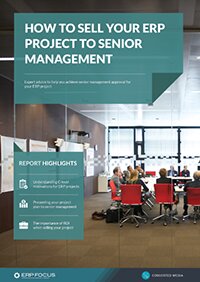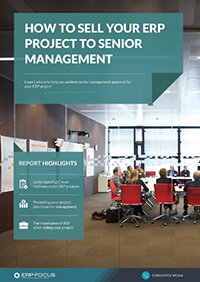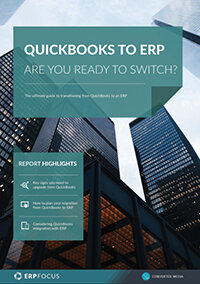How to highlight the need for system change with ERP use cases
When preparing for and dealing with issues associated with legacy ERP systems, positive areas of change may appear to be obvious to the system manager. However, under the hood, many legacy ERP systems tend to become intrinsic to the culture of a particular company’s management cadre, due to the repetitive expectations associated with operations behaving in a particular way, using particular systems and processes.
Recommended reading: Our guide to selling your ERP project to senior management will help you achieve executive level buy-in for new software.
ERP systems that promote company success tend to become static over time, just like managers do
Change is endemic to the growth of any business. However, ERP systems that promote company success tend to become static over time, just like managers do, for no other reason than ‘if it ain’t broken, why fix it.’ Regardless, higher up the food chain, smart executive decisions still have to be made to sustain the growth of any enterprise, and sometimes that means highlighting and breaking down historical, emotional and technological issues beginning from the top down.
An arrow in the quiver
Senior management education can be an important tool in the ERP project manager’s quiver when attempting to sell a new system concept; but in order to use that arrow effectively one first has to gain the confidence of constituent management, followed by the workforce as a whole. This is where ERP use cases come in.
Recommended reading: ERP selection survival guide - 10 proven steps to selection success
For example, if recurrent and well-understood accounting problems surface relating to the accuracy or freshness of reports driven by lagging data deliveries or balky ledger consolidations, begin to offer and propagate solutions by leveraging third-party ERP use cases that describe similar problems elsewhere. This can create a general sense that a particular enterprise cadre is ‘not alone’, while also beginning to marginalize discomfort at the concept of a holistic systems change.
Education, education, education
Another way to offer in-direct solutions to pressing, but overarching systems problems is to research relevant brand-specific materials, and deliver that information to key participants. Again, practical ERP use cases are not only are beginning to reduce the negative impacts of any major systems change, but also beginning to establish constituent confidence early into the process.
If paper documents are not effective, many companies convene regular enterprise-wide management meetings to keep operations on the straight and narrow. In this event, consultants and brand vendors can be asked to attend to further extend education across a management group. Nevertheless, whether ERP use cases are delivered as paper-based information products, group meetings, or informal small-setting discussions at the top floor, the process of education is intrinsic to the translation of any legacy-to-next-gen ERP upgrade.
Free white paper

How to sell your ERP project to senior management
Expert advice to help you achieve approval and funding for your ERP project

Featured white papers
Related articles
-

To switch ERP or upgrade ERP: that is the question
When legacy systems fail, the question of whether to switch to a new ERP or upgrade your existing...
-

CMMC Compliance: What Aerospace and Defense Manufacturers Need to Know
Key insights on CMMC compliance, deadlines, and securing DoD contracts with CMMC 2.0 certificatio...
-

When is it time to replace a legacy ERP system?
Replacing your legacy ERP system with new software can revitalize your business operations.


